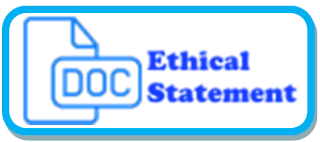Dear readers, authors, editors, and reviewers, starting from Volume 8 No 1, June 2023, Millati: Journal of Islamic Studies and Humanities has moved its website from OJS 2 (iainsalatiga.ac.id) to the new address, while maintaining access to the old websites. Manuscript submissions on the old website have been deactivated. Authors who are interested in submitting their manuscripts should do so using the new website.
Thank you for your kind attention.
Millati: Journal of Islamic Studies and Humanities.
=====================================
Millati: Journal of Islamic Studies and Humanities, with registered number ISSN 2541-3627 (Print) and ISSN 2540-9964 (Online), is a peer-reviewed journal published two times a year (every June and December) by Faculty of Ushuluddin, Adab, and Humanities, IAIN Salatiga. Millati is intended to be the journal for publishing articles reporting the results of research on Islamic Studies and Humanities. Millati has been accredited on the grade of Sinta 2 (S2) Journal by RISTEK DIKTI on Decree No. 200/KPT/2020 on Desember 23, 2020.
Millati: Journal of Islamic Studies and Humanities invites researchers, academics and parties concerned in the field of Islamic Studies and Humanities to contribute in the scientific publications. Millati invites manuscripts in the various topics include, but not limited to, Islamic Studies, Islamic Thought, Qur'an and Hadith interpretation, philosophy, and Islamic History and Civilization with philosophical perspectives, Mysticism, History, Art, Theology, Humanities and many more.

Announcements
We have moved to a new website |
|
| Dear readers, authors, editors, and reviewers, starting from Volume 8 No 1, June 2023, Millati: Journal of Islamic Studies and Humanities has moved its website from OJS 2 (iainsalatiga.ac.id) to the new address | |
| Posted: 2023-09-02 | More... |
| More Announcements... |











